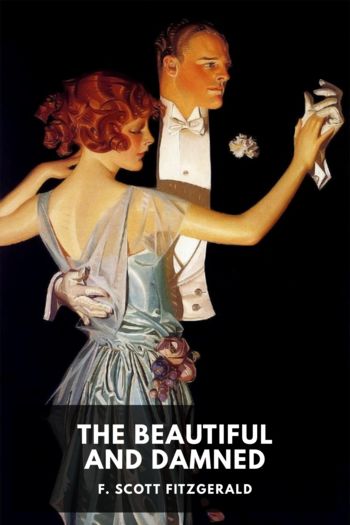Twelve Years a Slave by Solomon Northup (books to read to get smarter .txt) 📕

- Author: Solomon Northup
Book online «Twelve Years a Slave by Solomon Northup (books to read to get smarter .txt) 📕». Author Solomon Northup
One day, while working on the new house, Bass and Epps became engaged in a controversy, to which, as will be readily supposed, I listened with absorbing interest. They were discussing the subject of slavery.
“I tell you what it is Epps,” said Bass, “it’s all wrong—all wrong, sir—there’s no justice nor righteousness in it. I wouldn’t own a slave if I was rich as Croesus, which I am not, as is perfectly well understood, more particularly among my creditors. There’s another humbug—the credit system—humbug, sir; no credit—no debt. Credit leads a man into temptation. Cash down is the only thing that will deliver him from evil. But this question of slavery; what right have you to your niggers when you come down to the point?”
“What right!” said Epps, laughing; “why, I bought ’em, and paid for ’em.”
“Of course you did; the law says you have the right to hold a nigger, but begging the law’s pardon, it lies. Yes, Epps, when the law says that it’s a liar, and the truth is not in it. Is everything right because the law allows it? Suppose they’d pass a law taking away your liberty and making you a slave?”
“Oh, that ain’t a supposable case,” said Epps, still laughing; “hope you don’t compare me to a nigger, Bass.”
“Well,” Bass answered gravely, “no, not exactly. But I have seen niggers before now as good as I am, and I have no acquaintance with any white man in these parts that I consider a whit better than myself. Now, in the sight of God, what is the difference, Epps, between a white man and a black one?”
“All the difference in the world,” replied Epps. “You might as well ask what the difference is between a white man and a baboon. Now, I’ve seen one of them critters in Orleans that knowed just as much as any nigger I’ve got. You’d call them feller citizens, I s’pose?”—and Epps indulged in a loud laugh at his own wit.
“Look here, Epps,” continued his companion; “you can’t laugh me down in that way. Some men are witty, and some ain’t so witty as they think they are. Now let me ask you a question. Are all men created free and equal as the Declaration of Independence holds they are?”
“Yes,” responded Epps, “but all men, niggers, and monkeys ain’t;” and hereupon he broke forth into a more boisterous laugh than before.
“There are monkeys among white people as well as black, when you come to that,” coolly remarked Bass. “I know some white men that use arguments no sensible monkey would. But let that pass. These niggers are human beings. If they don’t know as much as their masters, whose fault is it? They are not allowed to know anything. You have books and papers, and can go where you please, and gather intelligence in a thousand ways. But your slaves have no privileges. You’d whip one of them if caught reading a book. They are held in bondage, generation after generation, deprived of mental improvement, and who can expect them to possess much knowledge? If they are not brought down to a level with the brute creation, you slaveholders will never be blamed for it. If they are baboons, or stand no higher in the scale of intelligence than such animals, you and men like you will have to answer for it. There’s a sin, a fearful sin, resting on this nation, that will not go unpunished forever. There will be a reckoning yet—yes, Epps, there’s a day coming that will burn as an oven. It may be sooner or it may be later, but it’s a coming as sure as the Lord is just.”
“If you lived up among the Yankees in New England,” said Epps, “I expect you’d be one of them cursed fanatics that know more than the constitution, and go about peddling clocks and coaxing niggers to run away.”
“If I was in New England,” returned Bass, “I would be just what I am here. I would say that slavery was an iniquity, and ought to be abolished. I would say there was no reason nor justice in the law, or the constitution that allows one man to hold another man in bondage. It would be hard for you to lose your property, to be sure, but it wouldn’t be half as hard as it would be to lose your liberty. You have no more right to your freedom, in exact justice, than Uncle Abram yonder. Talk about black skin, and black blood; why, how many slaves are there on this bayou as white as either of us? And what difference is there in the color of the soul? Pshaw! the whole system is as absurd as it is cruel. You may own niggers and behanged, but I wouldn’t own one for the best plantation in Louisiana.”
“You like to hear yourself talk, Bass, better than any man I know of. You would argue that black was white, or white black, if anybody would contradict you. Nothing suits you in this world, and I don’t believe you will be satisfied with the next, if you should have your choice in them.”
Conversations substantially like the foregoing were not unusual between the two after this; Epps drawing him out more for the purpose of creating a laugh at his expense, than with a view of fairly discussing the merits of the question. He looked upon Bass, as a man ready to say anything merely





Comments (0)